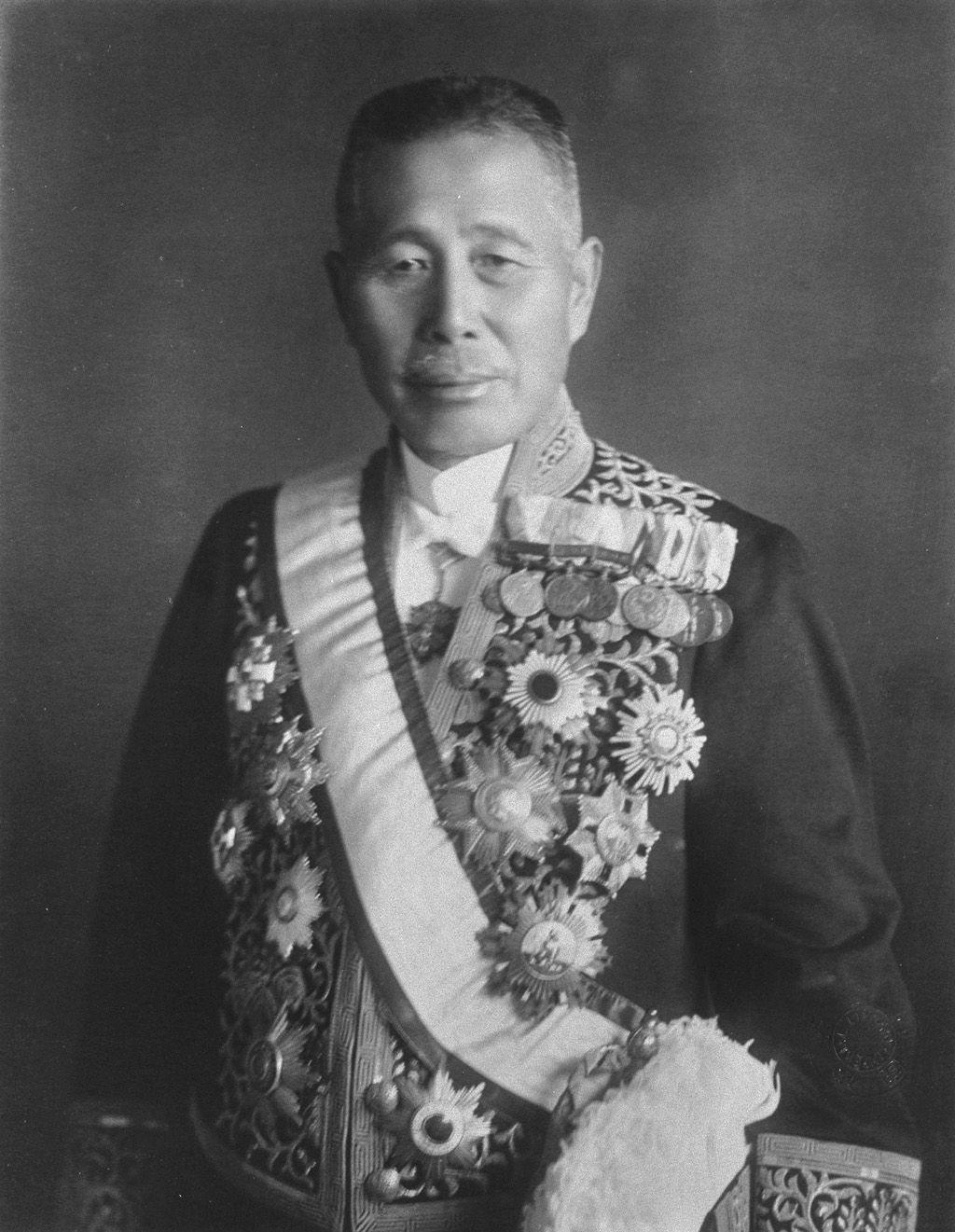- Tanaka Giichi
Infobox Politician
name = Tanaka Giichi
caption =Prime Minister of Japan
birth_date = birth date|1864|6|22|df=y
birth_place =Hagi,Nagato Province ,Japan
residence =
death_date =death date and age|1929|9|29|1864|6|22
death_place =Tokyo , Japan
office =26thPrime Minister of Japan
salary =
term_start =20 April 1927
term_end =2 July 1929
emperor =Emperor Taishō Emperor Shōwa
predecessor =Wakatsuki Reijirō
successor =Hamaguchi Osachi
constituency =
office2 =
salary2 =
term_start2 =
term_end2 =
predecessor2 =
successor2 =
constituency2 =
office3 =
salary3 =
term_start3 =
term_end3 =
predecessor3 =
successor3 =
constituency3 =
party =Rikken Seiyukai
religion =
occupation =
majority =
spouse =
children =
website =
footnotes =nihongo| Tanaka Giichi, 1st Baron Tanaka |田中 義一| Tanaka Giichi , (
22 June 1864 –29 September 1929 ) was a general in theImperial Japanese Army ,politician , and the 26thPrime Minister of Japan from20 April 1927 to2 July 1929 .Early life and military career
Tanaka was born to a "
samurai " family in Hagi,Nagato Province (modern dayYamaguchi Prefecture ),Japan . He graduated from theImperial Japanese Army Academy and the Army War College in 1892, and served in theFirst Sino-Japanese War , and later in theRusso-Japanese War , as aide to GeneralKodama Gentaro . In 1906, he helped draft a defense plan which was so highly regarded by theImperial Japanese Army General Staff that it was adopted by as basic policy untilWorld War I .Tanaka was fluent in the
Russian language , which he learned while as amilitary attaché toMoscow . He attended mass every Sunday at aRussian Orthodox church, which enabled him to practice his Russian at church social events, although it is uncertain if he ever actually converted to Christianity.In 1911, Tanaka was promoted to
major general , and was made director of the Military Affairs Bureau at the Army Ministry, where he recommended an increase in the strength of the standing army by two moreinfantry divisions.Promoted to full
general in 1920, he served as War Minister under Prime MinistersHara Takashi (1918-21) and the 2nd Yamamoto administrations (1923-24), during which time he backed theSiberian Intervention .After retiring from the army, he was invited to accept the post of party president of the "
Rikken Seiyukai " political party in 1925, and was made a member of theHouse of Peers . He was later elevated to the title of "danshaku" (Baron ) under the "kazoku " peerage system.Tanaka had been scheduled to be promoted to the rank of Field Marshal at the time of his retirement. However, when news reached the ears of the Army Ministry of a 3 million Yen bonus that Tanaka received on agreeing to join the "Rikken Seiyukai", the promotion was denied.
As Prime Minister
Tanaka became
Prime Minister of Japan in 1927, during theShōwa financial crisis , serving simultaneously as the Foreign Affairs Minister.On the domestic front, Tanaka attempted to suppress leftists,
Communists and suspected Communist sympathizers through widespread arrests (theMarch 15 incident of 1928, and theApril 19 Incident of 1929).In foreign affairs, he continued the aggressive interventionist policies he began as a military officer in China,
Manchuria andMongolia . On three separate occasions in 1927-1928 he sent troops to intervene militarily inChina to blockChang Kai-shek ’s Northern Expedition to unify China underKuomingtang rule, in what became known as theJinan Incident .Tanaka came into office even as forces were already beginning to converge that would draw Japan into
World War II . In 1928, however, the machinations of the ultranationalist secret societies and theKwantung Army resulted in a crisis: the assassination of the Manchurian warlordZhang Zuolin and the failed attempt to seizeManchuria . Tanaka himself was taken by surprise by the assassination plot, and argued that the officers responsible should be publiclycourt-martial ed for homicide. The military establishment, from which Tanaka was by now estranged, insisted on covering up the facts of the incident, which remained an official secret. Bereft of support, and under mounting criticism in Diet and even fromEmperor Hirohito himself, Tanaka and his cabinet resigned en masse.He was succeeded by
Hamaguchi Osachi , and died a few months later.The Tanaka Memorial
In 1929, China accused Tanaka of having authored the "
Tanaka Memorial Imperialist Conquest Plan", which advocated the conquest of Manchuria, Mongolia, and eventually the whole of China. He was alleged to have presented the plan to the Emperor in 1927. Today, most Japanese historians regard the document as a forgery [ [http://www.tokyo-np.co.jp/s/article/2008010190071313.html 日本批判の根拠『田中上奏文』 中国側 『偽物』認める見解] ,Tokyo Shimbun ,January 1 ,2008 ] . On the other side of the view, a memorial published in the mid-1950s by one of the principals in the revealation of the "Plan", a Japanese-born Taiwanese and businessman Tsai Chih-Kan, accounted that Tsai personally copied the "Plan" from the Imperial Library in the night of June 20, 1928, during a covert action which was assisted by several of Japan's leading pre-war politicians and officers who were opposed by Tanaka. With this account, many Chinese history textbooks consider the document as authentic.References
* Gluck, Carol. "Japan's Modern Myths". Princeton University Press (1987). ISBN 0-691-00812-4
*Hane, Mikiso. "Modern Japan: A Historical Survey". Westview Press (2001). ISBN 0-8133-3756-9
*Harries, Meirion. "Soldiers of the Sun: The Rise and Fall of the Imperial Japanese Army". Random House; Reprint edition (1994). ISBN 0-679-75303-6
* Morton, William Finch. "Tanaka Giichi and Japan's China Policy." New York: St. Martin’s Press, 1980.External links
* [http://www.infoplease.com/ce6/people/A0847768.html Biography at infoplease.com]
* [http://www.bartleby.com/65/ta/Tanaka-G.html Columbia Encyclopedia entry at bartleby.com]
* [http://www.kantei.go.jp/foreign/cabinet/26_e.html Official lifespan at kantei.go.jp]
Wikimedia Foundation. 2010.
